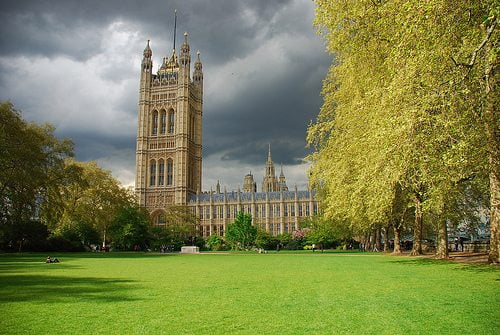

Features
Budget 2015: Not the greenest government ever
The Budget is a great piece of parliamentary theatre with the well-prepared speech of the Chancellor followed by a pre-prepared but quickly edited and reshuffled response by the leader of the opposition. The mood music for us is that the Chancellor didn’t mention climate change while the leader of the opposition did.
You need Ockham’s razor to cut through the many assumptions and complexities behind the truth of any budget statement. Many initially sound proposals quickly unravel under closer scrutiny, often leaving an omnishambles. We’ll leave others to undertake the detailed scrutiny of the implications of pension, annuities, savings, taxes and duties reform. We’ll cover the best tomorrow.
Our primary concern with last year and this year’s pension reforms is it seems to be a miss-sellers’ charter. Vulnerable people will be able to access investments more easily under light-touch regulation, with limited access to advice or guidance. Financial literacy in the UK is truly woeful across all age and wealth groups. The Boiler Rooms must be gearing up.
What is beyond doubt is that the Chancellor’s biggest assumption is that everything looks relatively rosy economically and climate change isn’t real. As a country we can drive forward with our addiction to fossil fuels and allow unfettered growth in road traffic which ignores the real costs of petrol.
Ed Davey was thrown a bone in tentative support for the £1 billion Swansea Bay Tidal Lagoon project, positioning it as support for Wales. This is no guarantee that the project will go forward and it should have received more than a 24-word endorsement.
In contrast, North Sea oil and gas merited 204 words and was offered a new single, simple and generous tax allowance. The supplementary charge (an additional corporation tax that raised £1.9 billion last year) on North Sea oil producers was cut from 30 to 20%. The petroleum revenue tax (a direct tax on specific fields in addition to corporation tax on super-profits introduced in 1975 and in place on fields developed before 1993 that raised £1.1 billion last year) was cut from 50% to 30%. Total revenue from UK oil and gas raised £4.7 billion in 2013-14, down from a peak of £10.9 billion in 2011-12. All things being equal this is a tax cut of £1 billion for oil and gas.
We need a more statesmanlike Chancellor who understands economics and climate science.
We needed a greater investment in energy efficiency, clean technology and renewable energy. The green deal remains a miserable failure. Growth could be funded privately with incentives to invest such as an additional green ISA allowance, and the Green Investment Bank being freed to borrow and lend. Nothing was done to redress the £250 million cut in flood defences over the course of this government.
The Chancellor’s declared insurgent industries are television, film and video games. Because just what the nation needs is another Angry Bird game rather than an unlimited supply of domestically produced clean energy to keep all those televisions, consoles, smartphones and tablets running. £140 million for research into infrastructure and cities of the future does not seem commensurate with the challenges we face.
A new help-to-buy ISA top-up for first time buyers does nothing to solve the underlying problem of supply. We need 232,000 new houses per year while only 109,000 are being built. Between 2001 and 2011, 200,000 homes were built in areas of significant flood risk, with 5.2 million properties now at risk in England alone. In 2011, the coalition relaxed planning rules meaning councils no longer need to report cases where they ignored Environment Agency advice. We desperately need a Royal Commission on Housing to address catastrophic and long-term market failure.
In summary, our disappointment with the budgets 2011 to 2015 is consistent. None of them have been the product of the greenest government ever. The economic recovery and forecasts are all welcome aspects to investigate but are predicated on an old model of unsustainable growth.
Constituency by constituency, voters should choose candidates who will fight for a more sustainable recovery and future for the United Kingdom.
Photo: soosalu via Flickr
Further reading:
Budget 2015: what we want versus what we’ll get
From the archives: Blue & Green Tomorrow’s budget coverage since 2011


 Features11 months ago
Features11 months agoEco-Friendly Cryptocurrencies: Sustainable Investment Choices

 Energy11 months ago
Energy11 months agoThe Growing Role of Solar Panels in Ireland’s Energy Future

 Energy10 months ago
Energy10 months agoGrowth of Solar Power in Dublin: A Sustainable Revolution

 Energy10 months ago
Energy10 months agoRenewable Energy Adoption Can Combat Climate Change

















